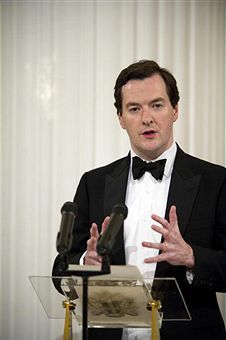 George Osborne has an historic opportunity to begin to turn the UK’s public finances
back into the black. As Reform noted in an alternative budget released last
week, while this will require making the toughest spending choices for a generation, history will smile on him if he does this in the right way. What the right way is will largely reflect three key
things.
George Osborne has an historic opportunity to begin to turn the UK’s public finances
back into the black. As Reform noted in an alternative budget released last
week, while this will require making the toughest spending choices for a generation, history will smile on him if he does this in the right way. What the right way is will largely reflect three key
things.
First, George Osborne’s Budget needs to be ambitious in its timeframe for reducing the deficit. Setting out to, say, simply “eliminate the bulk of the structural deficit in the term of this Parliament” will not be enough. Delay will make fiscal consolidation harder as interest payments on debt and the costs of unreformed programmes and entitlements will continue to rise. The target should be to eliminate the deficit within a term.
Second, the Budget needs to avoid ringfencing spending. It is not credible to claim to be restoring the public finances while refusing to cut large spending areas, such as the NHS, the universal Child Benefit, free TV licenses for the over 75s and the Winter Fuel Allowance. Spending cuts should occur over as broad a base as possible. Nothing should be off limits.
Third, the Budget should set out to reduce costs and raise taxes through structural reform, rather than introducing politically expedient short-term measures. The Budget needs to go beyond easy options, such as cutting consultancy budgets or gimmicks such as free swimming for pensioners, and reform public services like health and education. To avoid compromising growth and the recovery, tax increases need to be based on principle and emphasise a broad-based and low rate approach, and the large bulk of the consolidation (around seven-eighths) should come from spending cuts.
Patrick Nolan is chief economist at Reform






Comments